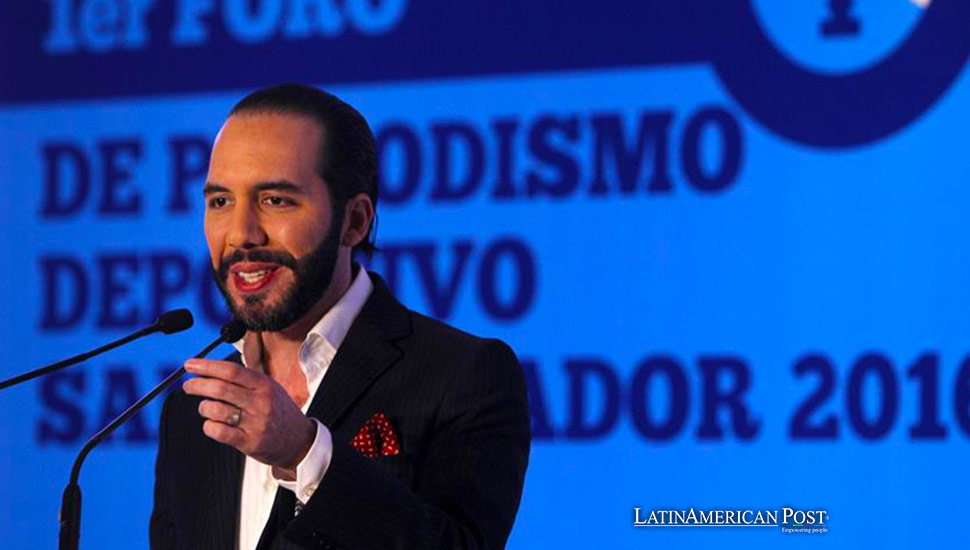El Salvador’s Bukele Announces Dismissal of 300 Public Employees to Save Funds

In a significant and controversial move, El Salvador’s President Nayib Bukele has announced dismissing over 300 employees from the Ministry of Culture. This decision aims to align the ministry with his government’s vision and save public funds, marking a bold step in his economic strategy.
El Salvador’s President Nayib Bukele continues to make headlines with his sweeping reforms and bold decisions. In his latest move, Bukele announced via social media platform X that more than 300 employees from the Ministry of Culture would be dismissed. According to Bukele, this decision is to eliminate agendas incompatible with his government’s vision and save public funds in the process. This announcement has sparked widespread debate and criticism, highlighting the deep divisions within the country’s political and social landscape.
A New Vision for Culture
President Bukele has positioned this move as part of a broader strategy to refocus the Ministry of Culture’s efforts on promoting patriotic and family values. Raul Castillo, a former teacher, was appointed as the new Minister of Culture last week. Castillo’s mandate appears clear: realign the ministry’s activities to reflect the conservative values endorsed by Bukele’s administration. This shift includes a strong stance against initiatives that do not conform to these principles.
“El Salvador is pro-life, pro-traditional family, and the 2030 agenda has no place here,” stated ruling party lawmaker Alexia Rivas, echoing Bukele’s sentiments. This statement underscores the administration’s rejection of specific international frameworks, such as the United Nations Sustainable Development Agenda, which includes provisions for a wide range of human rights.
Following complaints from local conservative and religious groups, the culture ministry’s recent cancellation of a play by drag artists exemplifies the type of cultural policy shifts expected under Castillo’s leadership.
Economic Priorities and Public Perception
A dual focus on security and economic reform has marked Bukele’s tenure. His first term saw a significant reduction in gang-related violence, which he described as curing the “cancer of the gangs.” However, his second term is set to tackle the “illnesses” of the economy. This metaphorical prescription of “bitter medicine” aims to address the country’s economic woes, a significant concern for the Salvadoran population.
According to a recent survey by the Instituto Universitario de Opinión Pública of the Jesuit Universidad Centroamericana, 73.7% of Salvadorans identify economic factors as the country’s primary issue. Furthermore, 25.8% believe the Bukele administration’s biggest failure has been in the financial domain. The survey also revealed that 60.5% of respondents think the economy has worsened or remained stagnant at the end of Bukele’s first term, with 69.2% stating that their family economy has not improved.
Under Bukele’s administration, El Salvador has lagged in economic growth compared to its Central American neighbors. The country remains highly dependent on remittances, which inject over $8 billion annually into the economy. Additionally, the percentage of households living in extreme monetary poverty has doubled from 86,000 in 2019 to 170,000 in 2023, according to economist José Luis Magaña. Official data also indicates that general poverty levels have increased from 22.8% to 27.2% of households.
Balancing Security and Democracy
Bukele’s approach to governance has garnered both praise and criticism. His aggressive stance on security has made significant strides in reducing crime rates in a country once considered one of the most dangerous in the world. However, this progress has come at a cost. The use of mass trials, the establishment of a mega prison, and the suspension of civil rights have drawn sharp criticism from human rights organizations.
As a former marketing professional, Bukele has leveraged his expertise to create a robust communications operation. This has enabled him to shape public perception and control the narrative about his government more effectively than any previous leader in El Salvador. While this media juggernaut has bolstered his popularity, critics argue it undermines the country’s fragile democratic institutions.
Bukele’s media strategy has helped him maintain high approval ratings despite the contentious nature of some of his policies. His ability to communicate directly with the public through social media has bypassed traditional media channels, allowing him to present his actions favorably. This direct line to the electorate has been instrumental in rallying support for his reforms and maintaining his political dominance.
The dismissal of over 300 employees from the Ministry of Culture is just one example of Bukele’s broader strategy to realign government institutions with his administration’s vision. While this move has been framed as a necessary step to promote efficiency and save public funds, it also highlights the ongoing tension between Bukele’s government and various sectors of Salvadoran society.
The focus on promoting patriotic and family values through the Ministry of Culture aligns with Bukele’s broader conservative agenda. However, this approach has raised concerns about potentially marginalizing diverse voices and perspectives within the cultural sphere. The administration’s stance on issues such as abortion and LGBTQ+ rights further underscores the conservative shift in policy.
As Bukele embarks on his second term, the balance between security, economic reform, and preserving democratic principles will continue to be a central challenge. His administration’s ability to address the financial concerns of the Salvadoran population while maintaining the gains made in security will be critical in determining the long-term impact of his presidency.
Bukele’s popularity and the effectiveness of his communication strategy suggest that he will continue to wield significant influence over the country’s political landscape. However, the success of his reforms will ultimately depend on their ability to deliver tangible improvements to the lives of ordinary Salvadorans. The dismissal of 300 cultural ministry employees is a bold move that reflects Bukele’s determination to implement his vision. Still, it also serves as a reminder of the complex and often contentious nature of governance in El Salvador.
Also read: El Salvador’s Bukele Begins Controversial Second Term Amid High Popularity
President Nayib Bukele’s recent actions underscore his commitment to reshaping El Salvador according to his administration’s principles. The dismissal of cultural ministry employees, framed as a cost-saving measure and a realignment of values, reflects the country’s broader challenges and opportunities. As El Salvador navigates this period of transformation, the interplay between security, economic reform, and cultural policy will continue to define Bukele’s legacy.





